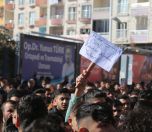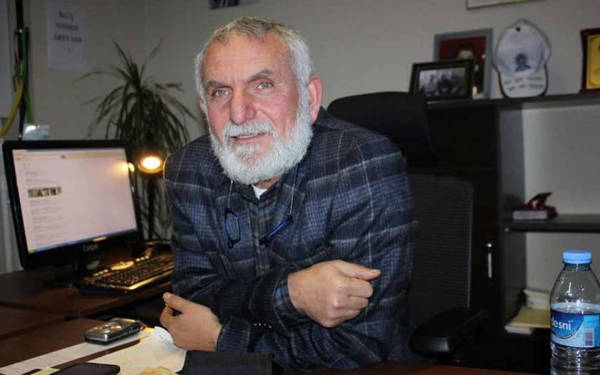Click to read the article in Turkish
Price hikes, power cuts, protests... After ending 2021 with a total price increase of 21.9 percent, 2022 did not start well for Turkey.
At the start of the year, electricity prices increased 168 percent for businesses and 156 percent for industrial facilities.
People from all around the country started to share their electricity bills on social media and took to the streets to protest.
Mass protests were held in Artvin, Antep, Mardin, İzmir, Diyarbakır, Van, Ağrı, Hakkari, Bursa, Antalya and İstanbul. Citizens called on President Recep Tayyip Erdoğan and his government to resign. Police intervened in the demonstrations in some cities.
Electricity bill protests were followed by an 84 hour-long power outage in the southwestern province of Isparta.
Professional organizations pointed out the government's policies, foreign dependency on energy, and privatization.
The distribution cartels
The Turkish electricity Institution (TEK) was founded in 1970 to produce, transmit, distribute and trade the electricity Turkey needed. It was reorganized in 1993 as the Turkish Electricity Production Transmission Inc. (TEAŞ) and the Turkish Electricity Distribution Inc. (TEDAŞ).
In 2001, TEAŞ was reorganized as the Turkish Electricity Transmission Inc. (TEİAŞ), the Electricity Production Inc. (EÜAŞ) and the Turkish Electricity Trade and Contracting Inc. (TETAŞ).
After coming to power in 2002, the Justice and Development Party (AKP) formed the "Electricity Energy Sector Reform and Privatization Strategy." In 2004, Turkish was divided into 21 electricity distribution regions. Later on, privatizations began and regional distribution companies emerged.
With the privatization of the Toroslar Electricity Distribution Inc. in 2013, the state completely withdrew from electricity distribution. Today, the companies operating in the 21 regions are the largest and most powerful companies in Turkey.
The holdings of Kolin, Limak, Cengiz, Sabancı, Çalık, Bereket, Alarko, Zorlu, IC İçtaş and Kazancı are among them.
The only exception is the KCETAŞ, the Electricity Distribution to Kayseri and Its Surroundings Inc., which was founded by the Kayseri Metropolitan Municipality long before the privatizations.
How much people pay, how much companies earn?The EÜAŞ sells electricity to the distribution companies. At the start of the year, the price of 1 kWh of electricity rose by 34.1 percent from 23.76 kuruş to 31.96 kuruş (1 US cent = 13.64 kuruş). The distribution companies, on the other hand, increased the prices by 129 percent to 175.7 kuruş for industrial facilities and by 125 percent to 273.95 kuruş for businesses. For households, the prices were increased by 50 percent to 137 kuruş for those who use less than 210 kWh of electricity in a month and by 125 percent to 206 kuruş for those who use more than that. In other words, the distribution companies make a profit of 330 to 546 percent from the electricity they sell to households. There are 47 million 189 thousand 111 electricity subscribers in Turkey. The average monthly electricity consumption per household is about 230 kWh, which costs 328.9 lira (24.13 USD) at current prices. The average monthly income of the distribution companies was 19.7 billion lira (1.45 billion USD) in October 2021. This is expected to rise to 42.2 billion lira a month and to 270 billion lira (19.81 billion USD) throughout the year. |
Duties of the electricity distribution companiesThe companies operate the electricity network in their respective regions. All physical elements of the network, from cables to poles and transformers to meters, are under the responsibility of distribution companies. 1. Maintenance, repair and improvement of the electricity network. 2. Doing repair work after malfunctions. 3. Doing scheduled maintenance to ensure that the network is in continuous operation. 4. Doing meter reading work in their regions. |
(HA/VK)


















